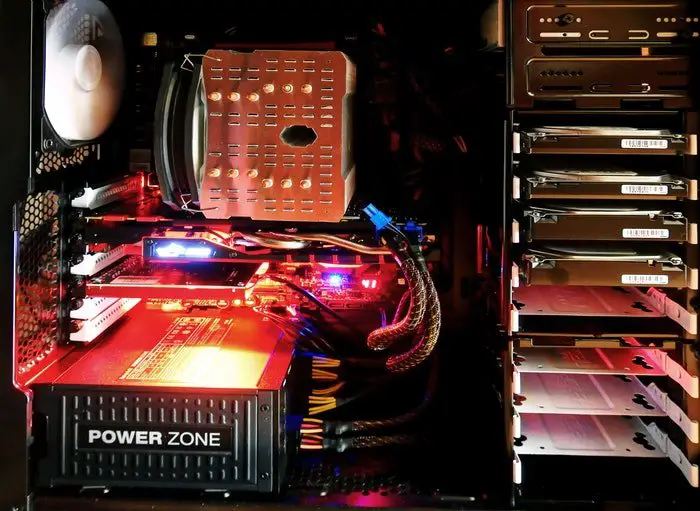While most problems are known to happen while running an application or program, many have also reported that their Windows computer freezes or crashes when closing Programs or Games.
While it is hard to replicate, the problem could be hardware issues, and it is seldom because of graphics drivers. The majority of users have reported running Desktops, which again points to the problem—the hardware. This post suggests a few ideas that you can consider.

Windows computer freezes or crashes when closing Programs or Games
Before we go ahead, make sure to check for any sign of overheating. Software like HWiNFO offers an excellent measure of temperature, especially if your motherboard supports it. The points you need to take a look at are:
- Does your computer have enough power?
- Disable Overclocking
- Is your computer overheating?
- Reinstall the problematic program
- Check in Clean Boot State
If you do not know how to manage a computer on a hardware level, we recommend asking someone who knows about it.
1] Does your computer have enough power?
Does your desktop have enough power? The Power Supply Unit (PSU) plays an important role, and if the components are not getting enough power, they will eventually fail as the heat takes over or they cannot keep up.
For example, if you are running a 6-core CPU, a high-end GPU like the RTX 3060, and plan to play games, make sure you have at least 750W PSU. While it’s more, it gives enough headroom. If the right PSU is not available, the components will try to keep up, but it will not be working at full capacity.
Another problem could be your motherboard. If it lacks quality capacitors or has gotten old, it will result in the same situation.
The best way to test is to remove the GPU, try it on another desktop with enough power, and see if it faces the same problem. This should be enough to help you figure out the hardware issue.
Read: Troubleshoot computer performance issues.
2] Disable Overclocking
Not all GPUs and CPUs can be overclocked. On top of this, if you are overclocking, you should also have ab efficient cooling system. Overclocking heats up both the components and need constant cooling. If it doesn’t cool down, the system is bound to fail.
As a suggestion, you can disable overclocking and see if that works for you. If you can use the computer and there is no crash, it only means the components are overheating and failing.
Fix: Windows Memory Leaks.
3] Is your computer overheating?
If your CPU and GPU temperature exceeds 70-90 degrees and stays that way for a long time, you might want to check with the cooling system. There may be a dust issue, or the thermal paste of the PCU has degraded over the long run.
This problem cannot be resolved using DISM or SFC and even a clean reinstall of the operating system. It’s a typical hardware issue as it happens after extended use of the computer, and while you are done, the computer is already unstable and ready to crash.
4] Reinstall the problematic program
You might also want to uninstall and then fresh-install the latest version of the program or game and see if it makes the problem disappear.
5] Check in Clean Boot State
Another option you have is to perform Clean Boot and see if the problem goes away or not. If the problem does not replicate, then you need to find the offending process that could result in the system crashing.
Other posts that may help you:
I hope the post was easy to follow and that you resolved the problem of the computer freezing or crashing when closing programs or games.
Can a bad CPU cause games to freeze?
Yes, a bad CPU can cause games to freeze. Faulty or overheating CPUs struggle to process game data efficiently, leading to system instability and crashes. Ensuring your CPU runs efficiently and stays cool can help maintain smooth gameplay and overall system performance.
Can bad RAM freeze your computer?
Yes, bad RAM can freeze your computer. Faulty or incompatible RAM may cause system instability, leading to crashes and freezes. To resolve this, check your RAM’s compatibility with your motherboard’s memory support list. Replacing the problematic RAM with a compatible module can help maintain a stable and smoothly functioning system.
Leave a Reply